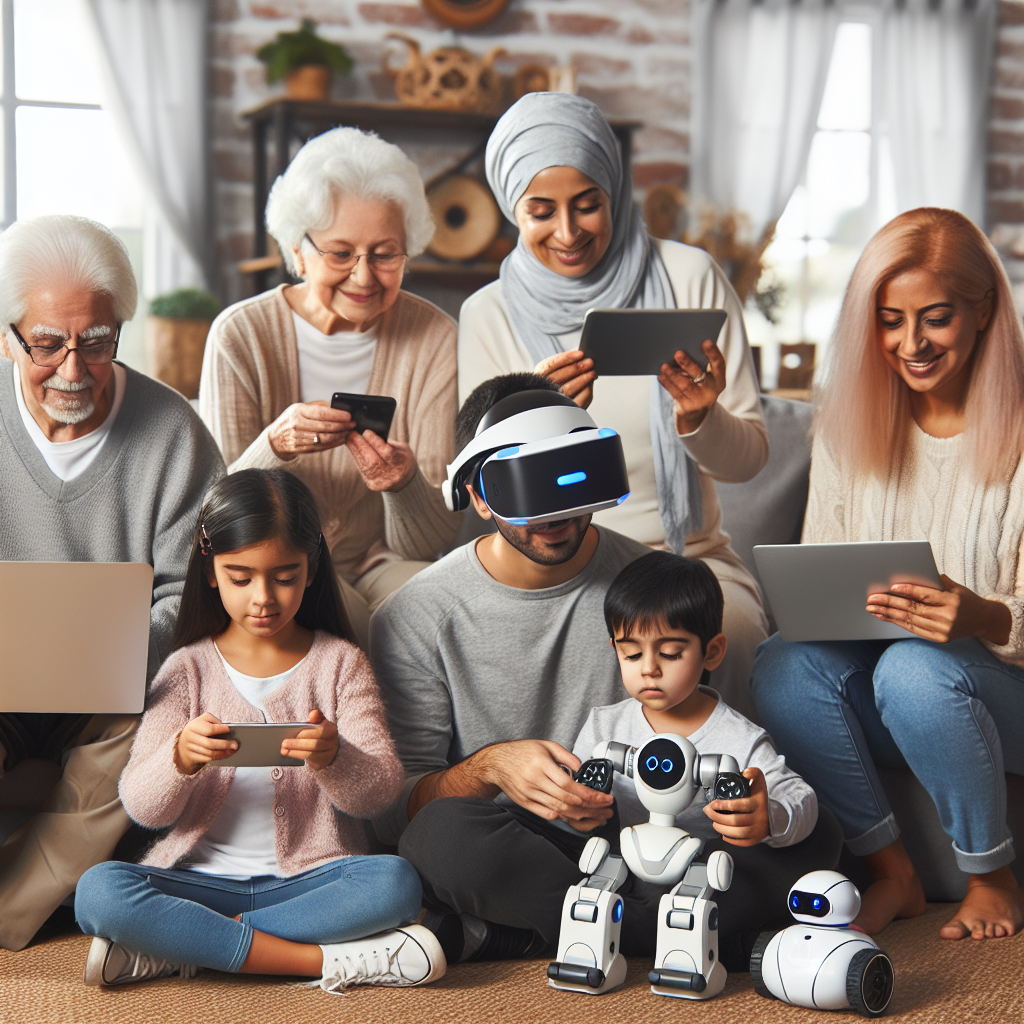Introduction
The rapid advancement of technology has significantly impacted various aspects of our daily lives. Among the most affected are family dynamics, which have undergone substantial changes due to the integration of technology into our homes. This article delves into the multifaceted impact of technology on family relationships, communication patterns, and daily routines.
The Evolution of Family Communication
Bridging Distances
One of the most notable benefits of technology is its ability to bridge geographical distances. With tools such as video calls, instant messaging, and social media, family members can stay connected regardless of their physical location. Grandparents can watch their grandchildren grow through video chats, and siblings can maintain close relationships even when living apart.
Challenges to Face-to-Face Interaction
However, while technology facilitates long-distance communication, it has also diminished face-to-face interactions within the household. Family members often find themselves engrossed in their screens, leading to reduced quality time spent together. This shift can weaken family bonds and hinder the development of strong interpersonal relationships.
The Role of Technology in Parenting
Educational Opportunities
Technology provides a plethora of educational resources that parents can leverage to enhance their children’s learning experiences. Educational apps, online courses, and interactive games offer diverse learning opportunities that can supplement traditional education.
Screen Time Concerns
On the flip side, excessive screen time has become a growing concern for many parents. Prolonged use of electronic devices can lead to issues such as poor academic performance, sleep disturbances, and even behavioral problems in children. Parents must strike a balance between harnessing the benefits of technology and mitigating its potential negative effects.
Impact on Household Routines
Efficiency and Convenience
Smart home technology has revolutionized household routines, making daily tasks more efficient and convenient. From automated lighting and climate control to smart appliances and home security systems, technology automates mundane tasks, allowing families to spend more quality time together.
Dependence on Technology
Despite the convenience, an over-reliance on technology can lead to a lack of essential life skills. For instance, children who grow up in tech-savvy homes may not learn basic household chores as quickly as previous generations did. This dependency can impact their ability to manage tasks independently in the future.
Technology and Family Entertainment
Shared Experiences
Technology has introduced new forms of family entertainment, such as streaming services, online gaming, and virtual reality experiences. These innovations can create opportunities for families to bond over shared interests and activities.
Isolated Consumption
Conversely, individualized consumption of media can lead to isolation within the family unit. When each family member is absorbed in their personal devices, it reduces the opportunities for communal activities, which are essential for fostering strong family relationships.
Conclusion
The impact of technology on family dynamics is complex and multifaceted. While it offers numerous benefits that enhance communication, learning, and convenience, it also poses challenges that can affect family relationships and routines. The key lies in finding a balance, allowing families to enjoy the advantages of technology without compromising on the quality of their interactions and relationships.

